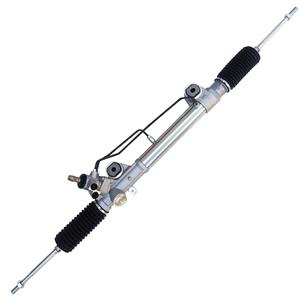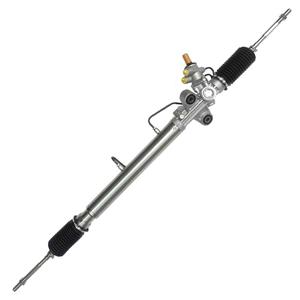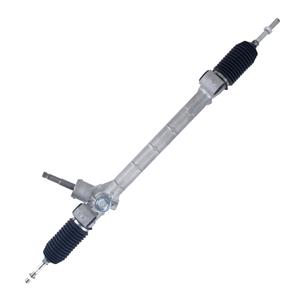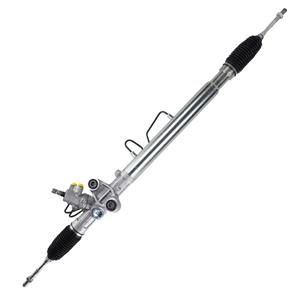Hydraulic Vs Mechanical Steering System: Why Hydraulic System is Better?
In the automotive field, the steering system is a key factor in determining the driving experience and vehicle handling performance. Two common steering systems - hydraulic steering system and mechanical steering system - each have their own applications and characteristics in vehicle manufacturing.
This article will delve into the differences between the two systems and analyze why hydraulic steering systems are generally considered superior to mechanical steering systems.
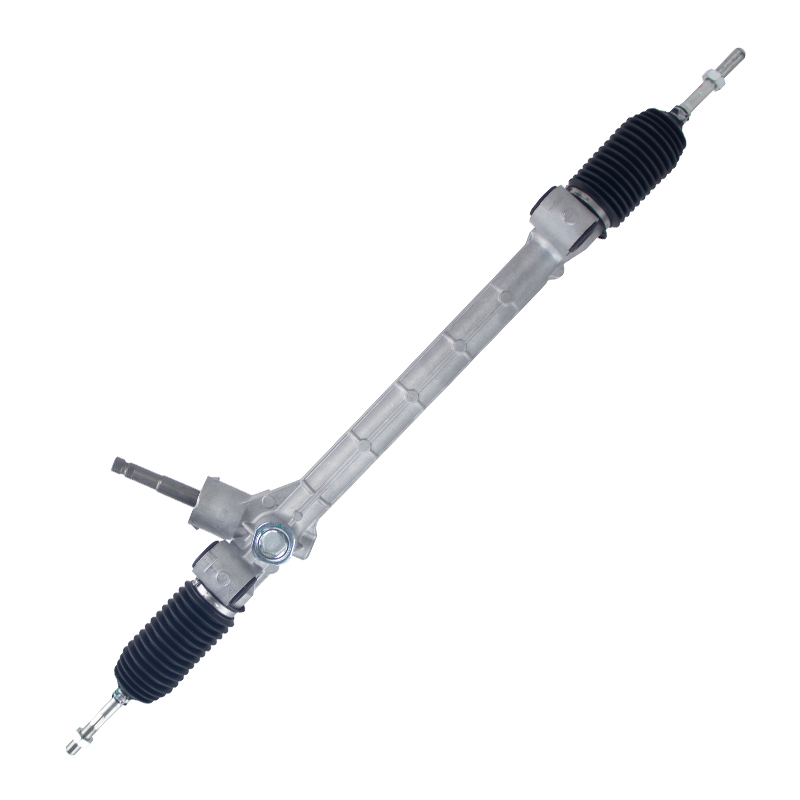
What are the basic principles of hydraulic steering systems and mechanical steering systems?
Mechanical Steering System
Mechanical steering system, also known as manual steering system, is a steering method that directly turns the wheels through physical force. In this system, the steering wheel is connected to the steering rack or steering gear through the steering column. When the driver turns the steering wheel, the rotational force of the steering wheel is directly transmitted to the wheels through the steering rack, turning the wheels and changing the direction of the vehicle. The mechanical steering system relies on the force applied by the driver to complete the entire steering process.
Hydraulic Steering System
The hydraulic steering system introduces hydraulic power assistance on the basis of the mechanical steering system. It uses the pressure generated by the hydraulic pump to assist steering, reducing the force required by the driver when turning the steering wheel. In the hydraulic steering system, the hydraulic pump is driven by the engine, and the hydraulic oil generated is transported to the steering rack or steering gear through a pipeline. When the driver turns the steering wheel, the hydraulic oil applies power to help the driver turn the steering wheel more easily.
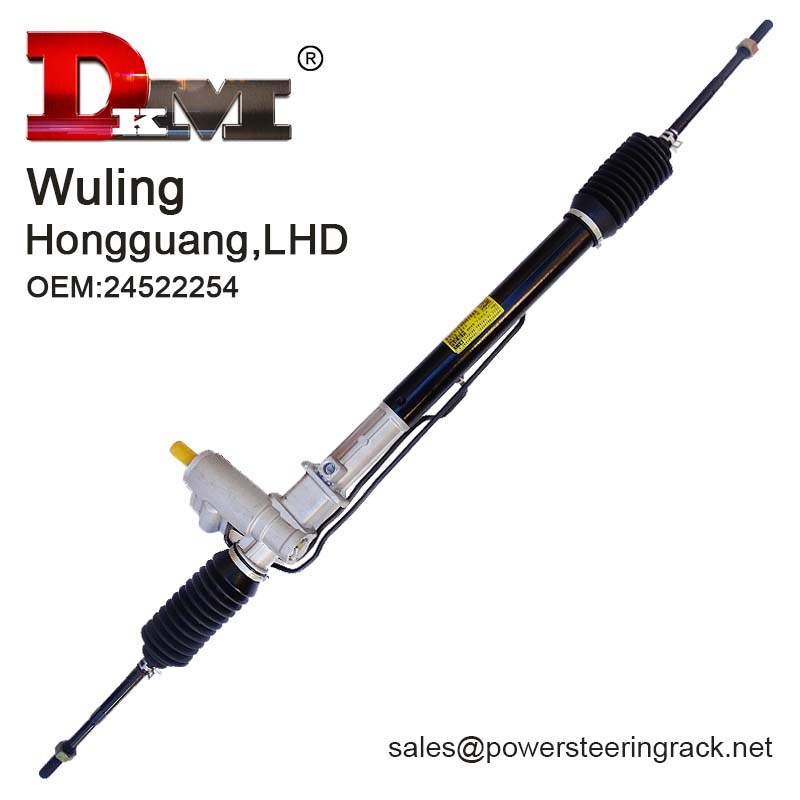
What are the advantages of the hydraulic steering system?
Easier to operate
The biggest advantage of the hydraulic steering system is that it significantly reduces the driver's steering load. In a mechanical steering system, the driver needs to apply a large force to turn the steering wheel, especially when driving at low speed or parking, this force requirement will be more obvious. The hydraulic steering system reduces the driver's operating difficulty through hydraulic power assistance, making the steering of the vehicle easier at any speed. This not only improves driving comfort, but also reduces the driver's fatigue caused by long-term driving.
Higher steering accuracy
The hydraulic steering system allows the driver to control the direction of the vehicle more accurately due to the presence of power assistance. In complex driving environments, such as sharp turns or high-speed lane changes, the hydraulic steering system can provide a more stable and sensitive steering response. This high-precision steering capability helps improve the vehicle's controllability and enhances the driver's confidence in the vehicle.
Enhanced safety
The power-assist function of the hydraulic steering system not only improves the comfort of control, but also significantly enhances the safety of the vehicle. In an emergency, the driver needs to react quickly and turn the steering wheel to avoid obstacles. The power-assist function of the hydraulic steering system allows the driver to complete this action more quickly and easily, thereby reducing the risk of accidents. In addition, when driving at low speeds, such as parking or reversing, the hydraulic steering system can also provide greater steering assistance, reducing the driver's operating errors.
More suitable for a variety of driving conditions
The hydraulic steering system can adapt to a variety of complex driving conditions due to its power-assist characteristics. Whether it is on narrow streets in the city, rugged mountain roads, or on highways, the hydraulic steering system can provide stable steering assistance and good control feel. This versatile adaptability makes the hydraulic steering system more universal and can meet the needs of different driving environments.
Reduce driving fatigue
Long-term driving may cause driver fatigue, especially when frequent steering or low-speed operation is required. Mechanical steering systems are prone to fatigue in the driver's arms and shoulders due to the large steering force required. The hydraulic steering system reduces the driver's physical exertion through hydraulic power assistance, making long-term driving easier and reducing safety hazards caused by fatigue.
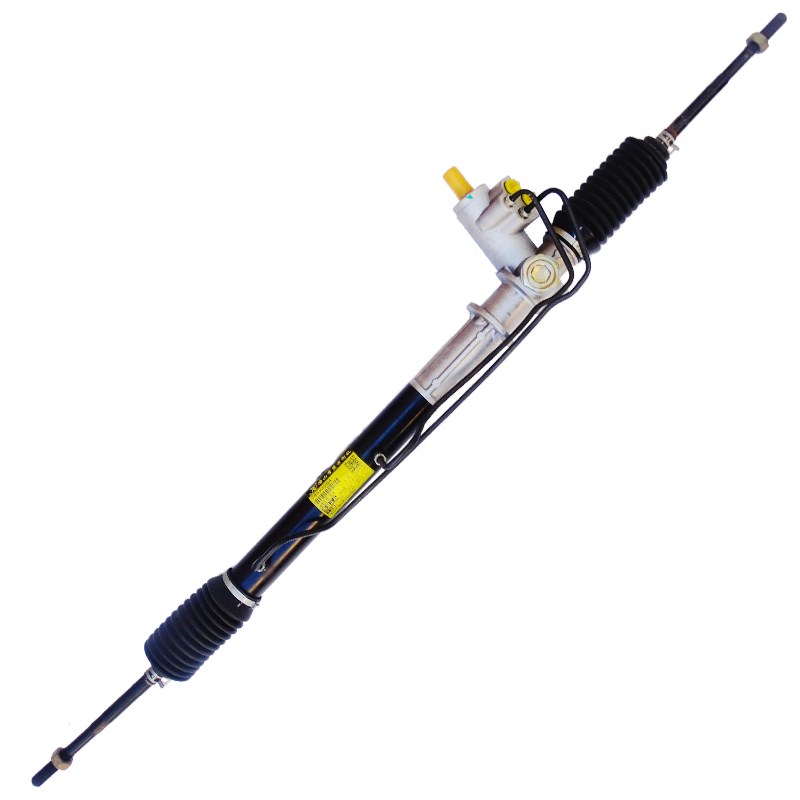
What are the shortcomings of mechanical steering systems?
Strong steering force
As mentioned earlier, the main disadvantage of mechanical steering systems is that they require greater force when steering, especially when driving at low speeds, such as parking or reversing, the driver needs to exert more physical strength to turn the steering wheel. This force requirement not only increases the difficulty of driving, but may also cause driving fatigue and affect the comfort of long-term driving.
Limited control accuracy
Because the mechanical steering system has no power-assist function, the steering accuracy and sensitivity are relatively low. When driving at high speeds or making emergency avoidance, the mechanical steering system may not provide sufficient controllability, resulting in slow steering response and increased accident risks. In addition, the physical structure of the mechanical steering system determines that its performance in complex driving environments is limited and it is difficult to meet the needs of modern driving.
Low comfort
Compared with hydraulic steering systems, mechanical steering systems have lower operating comfort. Because greater force is required to turn the steering wheel, the driver is prone to fatigue during long-term driving, especially in the case of frequent steering. In addition, the mechanical steering system has poor controllability and is difficult to provide a smooth driving experience, which is a significant shortcoming for some car owners who focus on driving comfort.
Applicability analysis of hydraulic steering systems
Hydraulic steering systems perform particularly well in daily driving. Whether it is city commuting, long-distance travel, or in congested traffic, the hydraulic steering system can provide a light and sensitive steering experience. This performance not only improves driving comfort, but also increases driving pleasure.
Secondly, in some special driving conditions, such as emergency avoidance or high-speed lane change, the advantages of the hydraulic steering system are more obvious. The fast and stable steering response it provides enables drivers to better respond to emergencies and avoid accidents.
In addition, the hydraulic steering system is suitable for various models due to its power-assist function and high adaptability. Whether it is a small car, SUV, or heavy truck, the hydraulic steering system can provide appropriate steering assistance according to the needs of different models, improving the overall handling and safety of the vehicle.
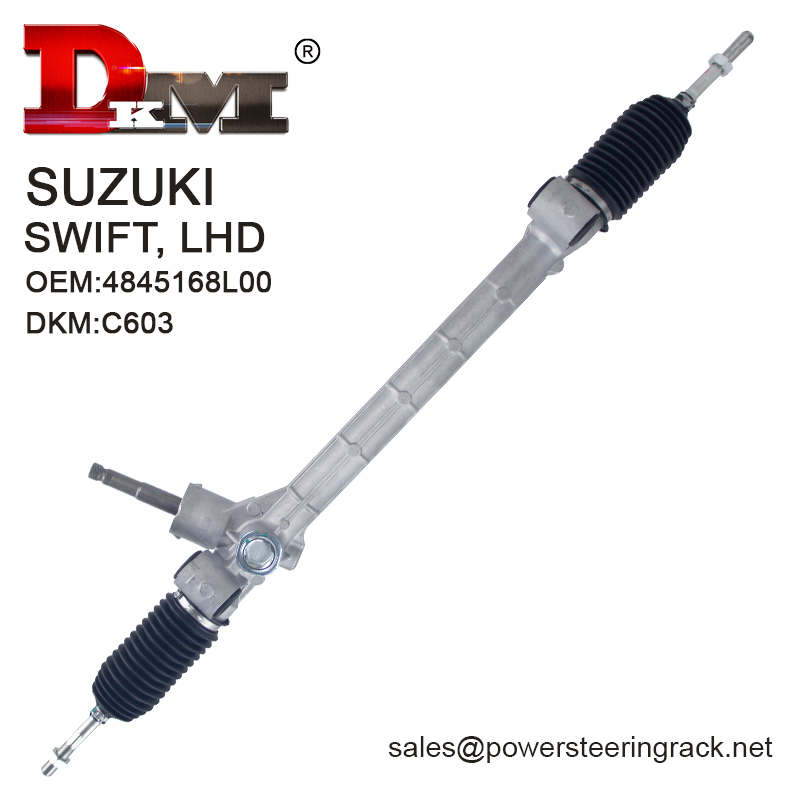
What are the limitations of the hydraulic steering system?
Although the hydraulic steering system has many advantages over the mechanical steering system, it also has some limitations. For example, the structure of the hydraulic system is relatively complex, and the cost of maintenance and maintenance is high. In addition, the hydraulic steering system relies on engine power to provide power assistance. When the engine is turned off or fails, the hydraulic power-assist function will fail and the steering will become abnormally heavy.
At Foshan Diamond Auto Parts Co., Ltd., we pride ourselves on delivering high-quality power steering systems to buyers worldwide. Since 1996, we have built a reputation as a reliable supplier of gear rack steering systems for a variety of vehicle brands. Our advanced manufacturing facilities include automated production lines and over 280 CNC machines, ensuring consistent quality and efficient delivery. We work with OEMs and distributors across Europe, the Americas, and Asia, providing low prices and wholesale options. Whether you’re purchasing in bulk or seeking custom solutions, our team is ready to meet your needs. Contact us today for competitive factory prices and detailed quotes!

